Joanna Palmer BSc Hons, nutritionist for the Smallholder Range, offers some timely advice to help keep your flock safe and healthy given the threat posed by the latest outbreaks of avian influenza.

At the time of writing, the UK had just been declared a Prevention Zone with regard to the seemingly relentless spread of avian influenza across mainland Europe. But due to the magazine’s publication schedule, the first chance you’ll get to read this will be on January 6th; the day on which the Prevention Zone restrictions come to an end.
However, it’s not clear at this stage whether restrictions will be lifted now, or continued beyond January 6th, but it seems likely at this stage that concerns will remain for a while yet.
So we thought it would be worthwhile to explain a little more about the Protection Zone, what it hopes to achieve, and how it affects back garden chicken keepers, and their birds, at a practical level.
Enhance biosecurity
As we’re sure you’re aware, it was the government’s Chief Veterinary Officer, Professor Nigel Gibbens, who announced the introduction of the Prevention Zone, early in December. It brought with it enhanced biosecurity requirements for poultry and captive birds in England, Scotland and Wales, designed to protect them from a strain of avian flu circulating in mainland Europe.
This story is from the February 2017 edition of Practical Poultry.
Start your 7-day Magzter GOLD free trial to access thousands of curated premium stories, and 9,000+ magazines and newspapers.
Already a subscriber ? Sign In
This story is from the February 2017 edition of Practical Poultry.
Start your 7-day Magzter GOLD free trial to access thousands of curated premium stories, and 9,000+ magazines and newspapers.
Already a subscriber? Sign In
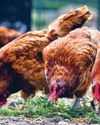
Growing food for Chickens
Mary Larham explores some crops to grow on your holding…
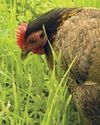
Poultry in the garden – the truth!
Jo-Jane Buxton shares her experiences
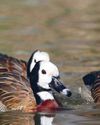
The British Waterfowl Association
Which came first, the goose or the egg?
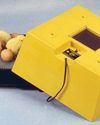
WHY FIT A FAN IN AN INCUBATOR?
Brinsea Products, the Incubation Specialists explain the difference between still air and forced draught
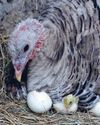
Incubating turkey eggs
Janice Houghton-Wallace looks at broody turkeys and artificial incubation
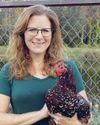
Chicken nesting box herbs
Diana Clauss owns The Blue Feather Farm, in St Cloud, Florida, home to chickens, ducks, goats, and Anatolian Shepherd dogs.
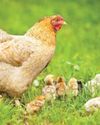
Incubate in January?
Jessica Wombwell says plan the breeding
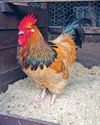
Andy's DIARY
Andy emphases the importance of keeping out damp and wet but allowing ventilation even in cold weather
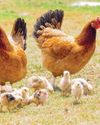
Feeding for Breeding
It may be winter, but as Joanna Palmer, nutritionist for Smallholder Range explains, now’s the time to get your flock in tiptop shape and plan ahead for a successful breeding season next spring.
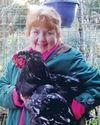
A chick named Cuckoo raised by a duck!
Chris Hammacott and her husband live on a small croft in the Outer Hebrides, they keep a ‘no kill’ flock or rare and rescue sheep which they use to spin and weave rugs. They also share the 8 acres with hens, ducks, cats and 9 rescue pugs.